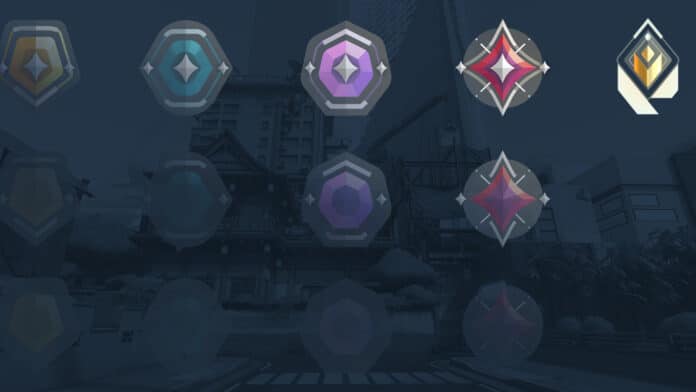With the constantly growing popularity of Valorant, more and more players are looking to venture into the game competitively and climb the ranking spectrum in the shooter.
However, the ranking system of Valorant can be a lot more complex than most people think, and a better understanding of it can help you climb through the ranks a lot faster.
Let’s take a look at how the ranking system works in Valorant, and how you can efficiently climb the competitive ladder of the title.
Valorant Ranking System
Currently the ranking system in Valorant is divided into the following ranks:
- Iron
- Bronze
- Silver
- Gold
- Platinum
- Diamond
- Immortal
- Radiant
Each of these ranks, with the exception of Radiant, are further subdivided into three groups.
After finishing five placement games in the competitive mode, players are assigned to one of these ranks depending on their skill level. From there, players have to grind Matchmaking Rating (MMR) by playing competitive gains to ascend to a higher skill group.
Each competitive win grants you Rank Rating (RR) points, and once you have 100 RR points, you rank up. For instance, if you’re currently Gold 2, and gain 100 RR points, you will become Gold 3.
On rare occasions, you’ll find yourself skipping a rank. This occurs when you trigger the ‘double rank up’, which happens when the algorithm determines that you possess higher skill than your current rank and can be obtained by consistent performances in competitive games and constantly gaining Match MVPs in matches.
What Impacts Your Rank Rating?
The primary factors that impact your RR points include:
- Match results (Whether you win or lose the match)
- Round differential (By how many rounds you win/lose the match)
- Your in-game performance (Determined by your combat score)
So, if you’re planning to climb the ranking ladder in Valorant, you should focus on putting up consistent individual performances and securing as many rounds as you can for your team.
Another key takeaway is to never give up – that surrender button might be tempting when you’re losing a game 10-0, but even winning a single round or two is better than losing 13-0 as a result of surrendering.


